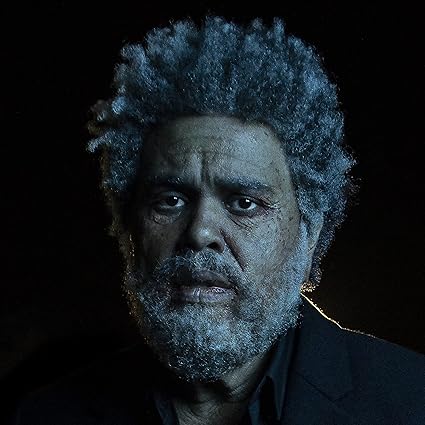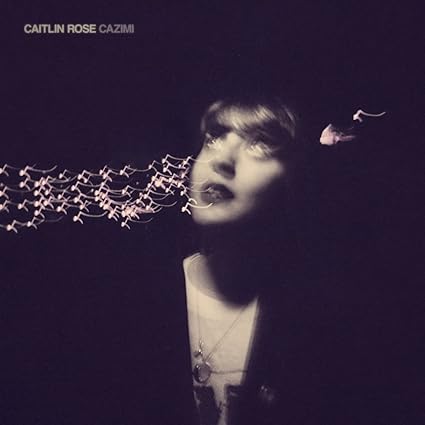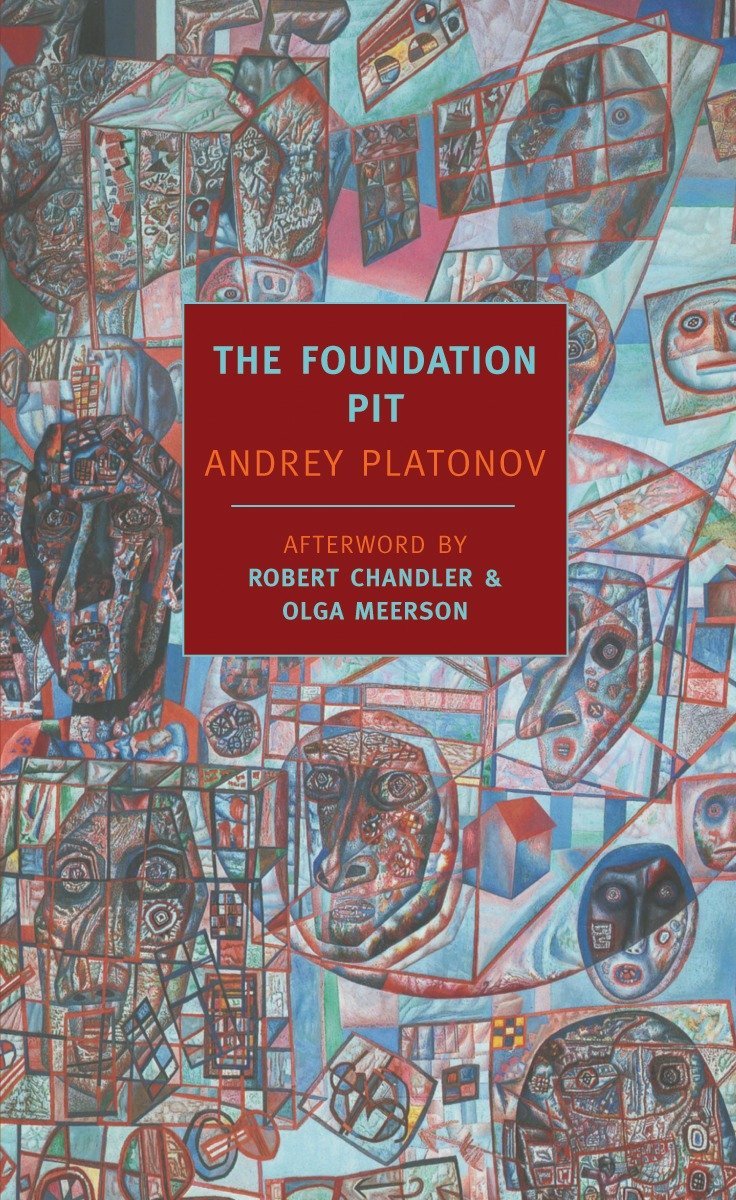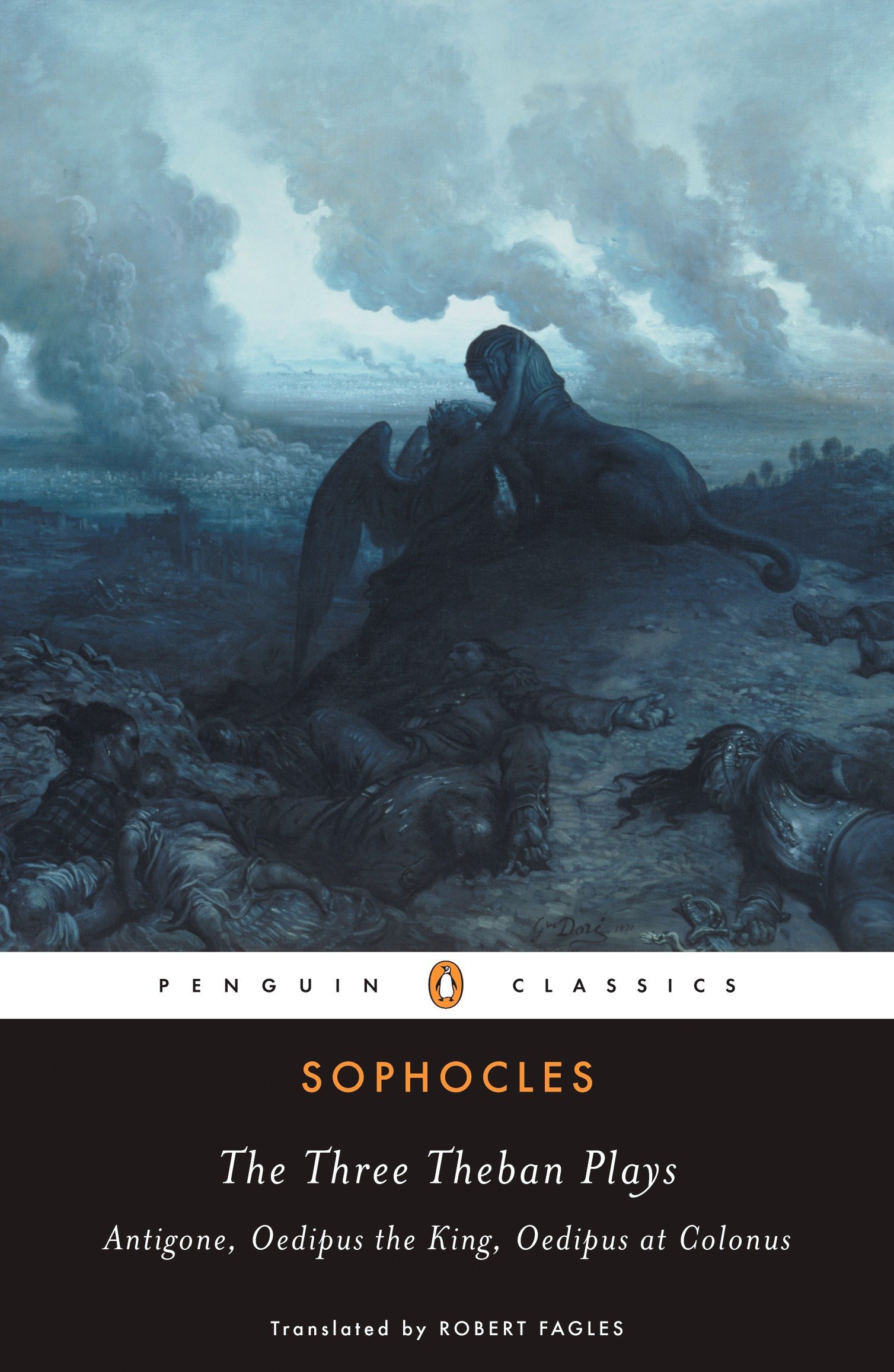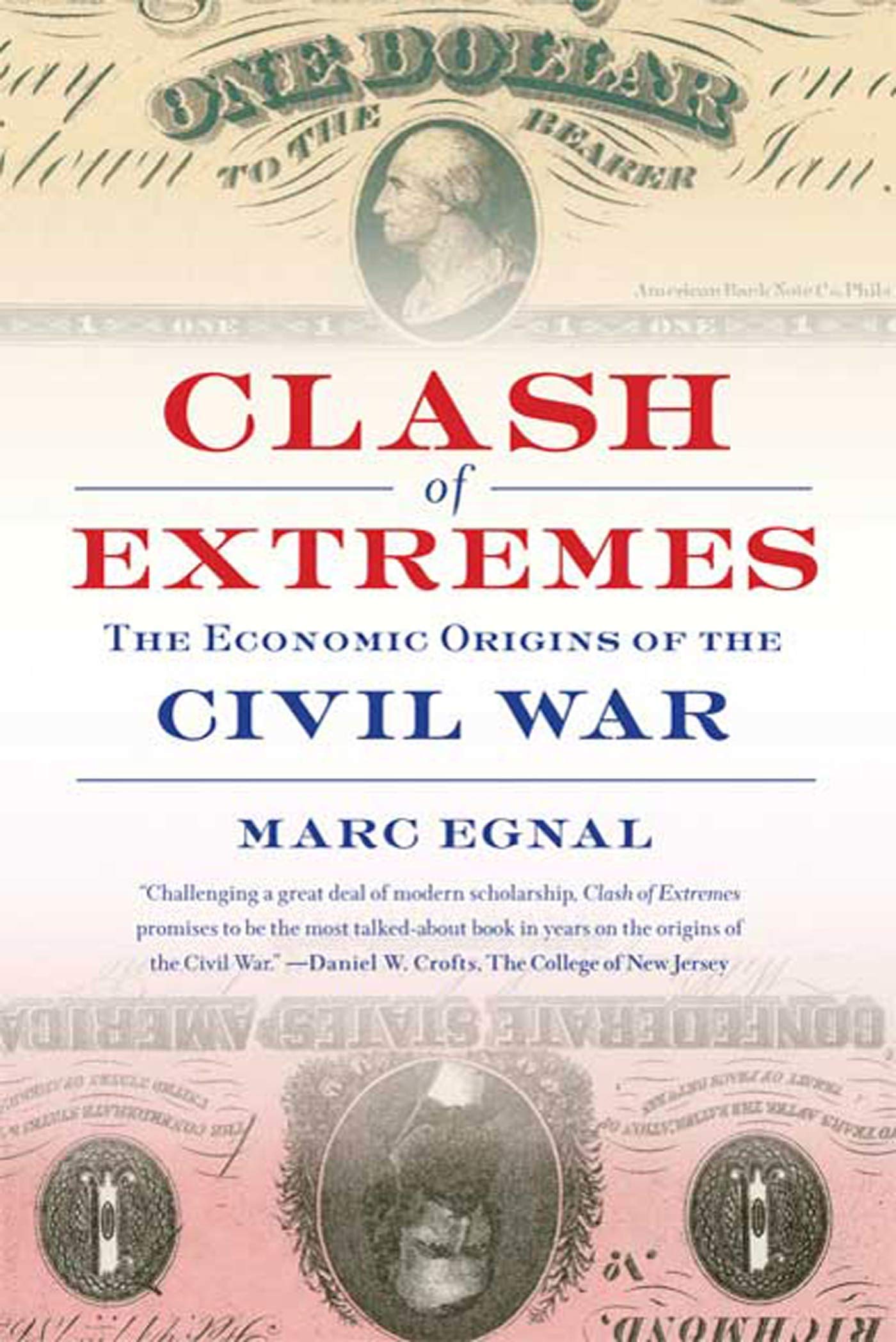[NOTE: This essay was originally published as "Emperor of Everything" in Norman Spinrad's On Books column in Asimov's Science Fiction Magazine, January 1988, pp. 173-186. It was impossible to track down online, so I bought Spinrad's 1990 essay collection Science Fiction In the Real World and have reproduced it here.]
Don’t stop me if you've read this one before, because if you do, about half the science fiction and about two-thirds of the fantasy on the racks will disappear in a flash of ectoplasm.
Our story begins out on the edge of civilization, where a seemingly ordinary youth is undergoing the alienated travails of adolescent angst. Unbeknownst to the bumpkins around him (and perhaps to himself), he is in fact the exiled rightful heir to the throne of Empire, or a closet mutant superman, or possessed of dormant magical powers, or one hell of a cyberwizard, or maybe just a natural .400 hitter with the double-edged broadsword.
But the Dark Forces are ascendant, a climactic Armageddon between Good and Evil is building, and our hero-in-hiding is destined by genes or bloodline or plotline imperatives to become the champion of the Armies of the Light. Sinister characters are sniffing around Podunk after him, and maybe come close to snuffing him by the end of chapter one.
'Long about now, a stranger from the central worlds shows up, possessed of advanced knowledge, a sense of political history, and a mission to seek out Destiny's Darling, inform him of his birthright, and train him up to take on Darth Vader for the heavyweight championship of the universe.
Thus begins our hero's wandering education under Merlin the Mutant, developing his full powers on a tank-town tour of the galaxy as he fights his way out of the boonies on a slow spiral trajectory towards the Seat of Empire.
Along the way he is spurned by the Princess, accretes a colorful satellite system of doughty lieutenants and top sergeants, puts together a People's Army, saves the Princess from a fate worse than Gor, winning her love in the process, then reveals to her his Secret Identity as the rightful Emperor of Everything, and converts her to his cause.
The People's Army battles its way to Rome, and fights it through toward the Presidential Palace for about 60 pages of heavy-duty derring-do. But the Dark Lord ain't the Master of Evil for nothin', kiddo. He slips a horseshoe in one glove and a neural disrupter in the other, and he and the hero go fifteen rounds, mano a mano, for the fate of the universe.
Well Uncle Ugly he ain't never heard of the Marquis of Queensbury and he's got the ref on the pad, and so our boy takes his lumps for about fourteen rounds, two minutes, and forty seconds. Black Bart is way ahead on all the judges' scorecards and he's about to kayo the White Light Kid anyway, so it looks like creation is in for a million years of red-hot claws.
But just as he's down and about to go out for the count, his magic powers surface, the Princess blows him a kiss, Obi Wan Kenobi reminds him that the Force is with him, his mutant intellect allows him to slap together a particle-beam pistol out of toothpicks and paperclips, and a lowly spear-carrier whose life he once saved shoots him up with about 100 mg of sacred speed.
He rises from the canvas at the count of nine, delivers a stirring peroration. "Hey bozo," he tells the Ultimate Villain, "yer shoelace is untied." As Ming the Merciless looks down to check it out the Hero of the People lands a haymaker that knocks him clean out of the ring, out of the novel, and into the next book in the series.
Good triumphs over Evil, justice prevails, the hero marries the Princess and becomes Emperor of Everything, and everyone lives happily ever after, or anyway till it's time to grind out the sequel.
Sounds familiar doesn't it? The SF racks are groaning under the leaden weight of these cloned "epic sagas of the struggle between Good and Evil" these “mighty heroes” in skintight space suits and brass-bound jockstraps, these “stirring action-adventure tales”.With a decent find-and-replace program in your computer, the above can serve as a marketing outline for the majority of SF published, and probably has.
If there could be such a thing as a foolproof formula for crud, this would be it. This is the time-honored equation for the commercial SF plot skeleton with all the variables cranked up to their theoretical limits.
The identification figure isn’t just a sympathetic hero, he's the ultimate wank fantasy, the reader as rightful Emperor of the Universe, indeed as the Godhead. The stakes are nothing less than human destiny for all time, and the Princess to win is always the number one piece of ass in the galaxy. The villain is as close to Satan as you can come without awarding both horns and the tail, twirling his black moustache as he feasts on the torment of the downtrodden masses, performs unspeakably vile sex acts, and squashes cute little mammals in wine glasses so he can drink the blood.
Ah, but there is no such thing as a foolproof formula for crud, not even the outline of The Emperor of Everything. For while it is certainly true that the diligent application of this formula has allowed armies of hacks to pile up mile-high mountains of adolescent power-fantasies for the masturbatory delection of wimpish nerds, wonder of wonders, it is also true that many of the genre's genuine masterpieces fit comfortably within its formal parameters.
Dune, Neuromancer, The Book of the New Sun, The Stars My Destination, most of Gordon Dickson's Dorsai cycle, The Lord of the Rings, The Three Stigmata of Palmer Eldritch, Lord of Light, Nova, The Einstein Intersection, Philip José Farmer's Riverworld books, Stranger in a Strange Land, Three Hearts and Three Lions, and many, many more novels of real literary worth are brothers between the covers, at least in plot summary terms, to the Ur-action-adventure formula.
So too for that matter, are the Book of Exodus, the New Testament, the Bhagavad Gita, the legends of King Arthur, Robin Hood, Siegfried, Barbarossa, and Musashi Murakami, the careers of Alexander the Great, Napoleon, George Washington, Simon Bolivar, Tokugawa Ieyasu, Lawrence of Arabia, and Fidel Castro, not to mention Atlas Shrugged, An American Dream, The Count of Monte Cristo, David Copperfield, The Man Who Could Work Miracles, and Superman.
Clearly then, we are looking at something far deeper here than a mere commercial fiction formula, a cross-cultural archetypal tale that would seem to arise out of the collective unconscious of the species wherever stories are told, and that indeed, some have argued, is even the archetypal story, period.
Joseph Campbell’s The Hero With a Thousand Faces is probably the most exhaustive, subtle, sophisticated, and spiritually aware explication of this thesis. Read this one if you really want the inner meaning with copious cross-cultural specifics.
Campbell's Hero, like the hero of The Emperor of Everything, begins the tale as a naif, acquires a mentor and a mission, fights his way to the center or the underworld, wins a climactic battle that gains him the object of the quest, often wins himself a Princess, and rises in triumph as a Lightbringer.
This may not be the formal template for all fiction, but it is certainly one of them, along with the tragedy, the picaresque odyssey, the love story, the tale of the Trickster, the bedroom farce.
For The Hero With a Thousand Faces, unlike the hero of The Emperor of Everything, is Everyman on a mystical quest.
His guide is his shamanistic spiritual master. His journey is the tale of his spiritual awakening. The battles he fights are with the lower aspects of his own nature, either overtly or imagistically transmogrified into villains or monsters. The underworld or center to which he at last penetrates is the Void at the center of the Great Wheel, the level of the psyche where ego and consciousness emerge out of the collective stuff of creation.
And the final battle at the center is the struggle to achieve the mystical fusion of his spirit with the world, the successful climax of which is his attainment of spiritual transcendence, graced by which he returns to the world of men as Lightbringer and heroic inspiration.
Thus the ability of this tale both to attract an avid audience, no matter how often it is told, and to inspire yet another literary masterpiece, no matter how many great writers have retold it in the past.
The Hero With a Thousand Faces is, after all, the story of ourselves, or anyway the story of our lives that we all would write if we had our fingers on the Keyboard in the Sky, which is why our professional storytellers keep telling it to us again and again throughout the world and across the millennia, and why we're always willing to live it vicariously one more time.
And if it is truly told, like Vonnegut's foma, it can make us feel brave and strong and happy, and by so doing encourage us to feats of spiritual bravery in our lives.
Take, for example, The Stars My Destination by Alfred Bester, recently reissued in hardcover by Franklin Watts after an inexcusable sojourn in the underworld of publishing limbo. This novel is generally recognized as one of the half-dozen best SF novels ever written and the prize blossom of the SF novel's 1950s flowering.
Gully Foyle, space freighter deck-ape Everyman at a karmic nadir, opens the novel marooned on a wreck and about to expire. A spaceship approaches within rescue distance but passes him by, lighting up the depths of his dormant spirit with the fire of vengeance.
Hate drives him to mighty deeds. He survives, escapes, begins his quest to ferret out and destroy Vorga, the spaceship that left him to die, in the opening acts of which he discovers the corporate powers and machinations behind the deed, and ends up thrown in the literal underworld, the Gouffre Martel, a deep cave in which prisoners suffer total darkness and total isolation. There via the “whisperline”, he meets the Princess-cum-spirit-guide, Jisbella McQueen.
They escape from the underworld and Foyle transforms himself into Formyle of Ceres, a rich and powerful figure able to pursue and hunt down the powers behind Vorga at the highest political and social levels.
Foyle does not merely amass the fortune and assume the identity of Formyle of Ceres; we see him grow, through a process of worldly and spiritual education, into his true manhood, and we see his quest for vengeance transform itself into a quest for social justice.
At the climax of the novel, Bester, through a brilliant synergy of prose and something like illustration, puts Foyle and the reader through what can only be called a genuine psychedelic peak experience. Trapped and burning in another underworld, his senses crossed and mixed into synesthesia, Foyle teleports wildly through space and time while morally wrestling with the question of what to do with the secret substance PyrE.
PyrE is a thermonuclear explosive that can be detonated by thought alone. Anyone can do it. Foyle, through his evolution into The Hero With a Thousand Faces, has gained the power to "space-jaunte," to teleport anywhere in the galaxy. At this moment, he is the Emperor of Everything for fair. He has the power to literally open the universe to man. He has a secret that, if it gets out, will give whoever knows it the power to destroy civilization. The fire of the gods is in his hands for good and/or evil.
What is a true hero to do? Sit on the secret of PyrE and arrogate the ultimate power unto himself? Leave it in the hands of the "responsible" power structure for safety?
The ultimate moral greatness of The Stars My Destination is that Gully Foyle does neither.
As the avatar of the fully awakened Everyman, he turns the fire of the gods over to Everyone: he places PyrE in the hands of the people.
"We're all in this together, let's live together or die together”, he tells the worlds of men. "All right, God damn you! I challenge you, me. Die or live and be great. Blow yourself to Christ and gone or come and find me, Gully Foyle, and I make you men. I make you great. I give you the stars."
Everyman, transformed into the Lightbringer, like the true Bodhisattva, eschews the pinnacle of egoistic transcendence and returns to the worlds of men not as an avatar of the godhead, but as Everyman reborn, reborn, as the democratic avatar of the godhead within us all. And that, not the magnificence of some anointed Darling of Destiny, is the true light of the world.
This is the true telling of the tale for the modern world, a version that in a sense would have literally been inconceivable prior to the advent of the democratic ethos, though there are echoes of it in Buddhism and the myth of Prometheus. Indeed, this spiritual message is one that the majority of people still don't seem ready to hear, or at least the avid readers of all those clones of The Emperor of Everything.
Just as republics tend to degenerate into empires, paths of enlightenment into hierarchical religions, and inspirational leaders into tyrants, so does the tale of The Hero With a Thousand Faces tend to degenerate into The Emperor of Everything, and for much the same reasons.
Gully Foyle is a true hero not because of his derring-do, though he does his share of derring, nor because of the godlike powers he attains, but because he achieves at the end the moral heroism and clarity of the Bodhisattva.
But few mighty heroes, fictional or otherwise, eschew the throne of transcendent power. Even noble Caesar, republican at heart, accepted the crown of empire the fourth time around. Paul Atreides, the overtly transcendent hero of Frank Herbert's Dune sage (which is to say Dune, Dune Messiah, and Children of Dune, the novels in the series that chronicle his life), prescient superman that he is, wrestles with this final task of the true hero and ultimately fails, to his own sorrow.
Paul is the hunted, exiled, rightful heir to the dukedom of Arrakis. He undergoes a whole series of initiation mysteries under many spiritual masters and mistresses as he raises up the Fremen into the People's Army, which will free the planet from the evil Harkonnens. Paul is destined by breeding to become the Kwizatz Haderach, a being of such godlike prescient power that he will be worshipped as a god in whose name jihad will sweep the worlds of men. At the triumphant end of Dune, he not only destroys the Harkonnens but stands fully revealed as the avatar of the godhead and quite literally crowns himself Emperor of Everything.
Superficially, Dune seems like the ultimate power fantasy for nerdish adolescents. One meets the identification figure as the special young boy that is one’s own dreamself; follows him through battle, spiritual adventure, and derring-do, and finally one becomes the transcendent object of worship of all the worlds and crowns oneself Emperor of Everything. The perfect wank, or so it would seem.
But not to Paul Atreides.
The drug melange has made Paul prescient, so that quite early on he envisions the jihad that he is destined to bring. And he abhors it. Everything he does, at least on a certain level of self-deception, is designed to prevent it, but everything he does ends up leading him back along the timeline to the inevitable. At the end of Dune, he can only surrender to his unavoidable destiny, assume the godhead, crown himself emperor, and become the icon of the jihad.
Thus, the superficially triumphant denouement of Dune is really a tragedy. The Hero achieves everything up to and including the crown of god-king of the universe, but unlike Gully Foyle, he cannot transcend his transcendence, he cannot achieve the grace of the Bodhisattva, he cannot place the scepter of enlightenment and power in the hands of Everyone, he cannot stop his own jihad.
And his personal tragedy is that he knows it. Indeed, he has known it all along. He spends most of Dune Messiah as the enthroned messiah in question, a crabbed and cranky figure presiding over the bureaucratic institutionalization of his own cult of personality. He dies in Dune Messiah, is reborn in Children of Dune as a desert Jeremiah, and he dies again without destroying his own mythos.
This is what makes the first three books in the Dune series a literary achievement instead of a masturbatory power fantasy, even though the elements of the latter are all there to the max. Herbert has irony in these novels, and so does his archetypal Hero. In a sense, the novels are a mordant commentary on the story of The Hero With a Thousand Faces. Paul may become god-king of the universe, but he cannot escape the destiny that has raised him to this pinnacle, he cannot abdicate to the republic of the spirit, nor can he escape the dire consequences of his own godhood. He is a god who can do everything but attain his own final enlightenment, without which his life is a failure and this retelling of the tale a tragedy.
This is also why the rest of the Dune books, the ones that take place after Paul is finally gone for good, degenerate into a series of retellings of The Emperor of Everything, in which messianic figures and Jesuitical conspiracies battle for spiritually meaningless power in the long, long pseudo-medieval aftermath of his passage.
Taken as a whole, the Dune series is almost a perfect textbook example of how and why the tale of The Hero With a Thousand Faces easily devolves into its unfortunate mirror-image, The Emperor of Everything. In superficial terms, one is as much a power fantasy as the other, but the true tale also has a moral and spiritual dimension. Shorn of its derring-do, The Hero With a Thousand Faces is a myth of enlightenment like Siddharta or The Magic Mountain or The Dharma Bums, in which the payoff for the reader is vicarious mystic transcendence and elevated moral consciousness.
But shorn of its inner spiritual heart, shorn of Gully Foyle's climactic mystical democracy or Paul Atreides' tormented ironic prescience, the tale can only become what Hitler made of Nietzsche. For alas, the Führerprincip is the dark flip side of the tale of The Hero With a Thousand Faces. For without the moral vision of a Bester or the tragic irony of a Herbert, the inner light of the story is lost, and in place of a paradigm of spiritual maturation, we are left with only the pornography of power, with the egoistic Faustian masturbation fantasy of the fascist mystique, with the reader's hands in his tight black leather pants as he envisions himself as the all-powerful Ubermensch in the ultimate catbird seat.
Few of us, after all, are Bodhisattvas; most of us would like to feel a good deal more powerful than we really are, and so all too many of us are attracted to the Führerprincip just as long as we can fantasize ourselves as Der Führer in question.
That's why, given reasonably skilled retelling, the latest clone of The Emperor of Everything will still move off the racks, especially if it is properly packaged with bulging thews, phallic weaponry, and suitable fetish items. Remove the inner light from the eyes of The Hero With a Thousand Faces and the face that leers back at you has a cowlick and a Charlie Chaplin moustache.
That's also why Adolf Hitler has become as powerful an archetype as the Hero, why Nazi imagery still has such a baleful appeal forty years later, and in a certain sense how Hitler mesmerized Germany. And also why the despiritualized version of the tale is so dangerous to the mental health of the reader and the body politic.
In my own novel The Iron Dream, I attempted an exorcism of this demon in terms as overt as I could manage. Here is The Emperor of Everything to the putrid max. Feric Jaggar, our hero, destined in his genes to rule, fights his gory way from ignominious exile in the lands of the mutants and mongrels to absolute rule in the Fatherland of Truemen, after which he wages a successful holy war to purge the Earth of degenerate mutants and sends off clones of himself to conquer the stars.
But within The Iron Dream is an internal novel, a thing called Lord of the Swastika by one Adolf Hitler. Feric Jaggar is Hitler's dream of himself as the tall blond Aryan superman, and Lord of the Swastika is Hitler's fantasy of the triumph of the Third Reich in an alternate world after nuclear war has polluted the gene pool, written in yet another alternate world in which Nazi Germany never happened and Hitler himself was a lowly SF hack.
Lord of the Swastika begins with a science fantasy feel and small-scale mutant bashing, but Hitler's brain is rotting away from paresis as he writes it, he begins to gibber, the violence becomes surreally horrid and grand-scale, military technology advances by leaps and bounds, and by the time the novel is two-thirds over, the reader who has been getting off on this stuff finds himself confronted with the awful revelation that he has been getting off on the racism, Sturm and Drang, military fetishism, and inner psychic imagery of the Third Reich itself, replete with swastikas, Nuremberg rallies, SS Panzer divisions sweeping across Europe, carpet-bombing of population centers, genocide concentration camps, and gas ovens.
Hitler ends his novel by cloning seven-foot-tall blonde SS supermen in toilet bowls and sending them off in great spurting phallic rockets to exterminate mutants and monsters throughout the galaxy, each division of Werewolf SS heroes led by a clone of Der Führer himself.
The idea, of course, was to suck the reader into the standard The Emperor of Everything power fantasy and then point out, none too gently, what this dynamic had actually led to in our alternate world by bringing the Nazi symbology right up front and laying on the violent loathsomeness with a trowel. The Emperor of Everything really is Der Führer, suckers, and you have been marching right along behind him.
To make damn sure that even the historically naive and entirely unselfaware reader got the point, I appended a phony critical analysis of Lord of the Swastika, in which the psychopathology of Hilter’s saga was spelled out by a tendentious pedant in words of one syllable.
Almost everyone got the point….
And yet one review appeared in a fanzine that really gave me pause. “This is a rousing adventure story and I really enjoyed it,” the gist of it went. "Why did Spinrad have to spoil the fun with all this muck about Hitler?"
And the American Nazi Party put the book on its recommended reading list. They really liked the upbeat ending.
Apparently, the appeal of The Emperor of Everything to the longings for power within all of us save the true Bodhisattva is so powerful that some readers can get off on it, even when it means reveling in genocide and identifying with Adolf Hitler.
This is admittedly as extreme as an example of the phenomenon can possibly get, and the overwhelming majority of the readers of The Iron Dream did get the point.
More commonly though, the writer himself may not be entirely aware of what he is doing, for it is all too easy to lose the inner meaning of The Hero With a Thousand Faces, at which point entropy and commercial pressure almost always pull the tale down into The Emperor of Everything, as witness what happened to even such as Frank Herbert in the latter Dune novels, or Robert Silverberg's descent from the brilliant version of Son of Man to the skilled but passionless rendition in Lord Valentine's Castle, or Orson Scott Card's trajectory from Songmaster and Hart's Hope through Ender's Game and into Speaker For the Dead.
In Hart's Hope and Songmaster, Card amply demonstrated that he understood the inner meaning of the archetypal hero tale and could bring it home to the reader with power and clarity.
Hart's Hope is a fantasy novel set in a densely symbolic pseudo-medieval landscape largely of Card's own imaginative making. It is an overtly mystical retelling of the hero tale in which self-sacrifice is elevated over egoistic triumph, and it works admirably.
Songmaster plays The Emperor of Everything off against the artistic impulse, music in this case, and Card comes down squarely on the side of esthetics on the side of the human spirit against worldly power.
So how did a writer like this end up producing Ender's Game and Speaker For the Dead? And why have these latter-day works gained him the sales and awards and readership denied him for artistically and morally superior work like Hart’s Hope and Songmaster?
The chronology of how the first two novels (in what appears to be the continuing saga of Andrew "Ender" Wiggin) came to be written may prove instructive. Card first published the novella version of Ender’s Game. Then he apparently wrote the outline for Speaker For the Dead as a sequel to it but decided to turn Ender's Game into a novel first, perhaps because he realized in media res that he had started himself a trilogy without knowing he had done so initially.
Structurally, it really shows. The final chapter of Ender’s Game seems entirely dissociated from the rest of the novel and seems to exist entirely as a bridge to Speaker For the Dead, which in turn takes certain clumsy pains to establish the back-story of Ender's Game, which Card could have almost completely ignored if he had conceived of either book as a freestanding novel.
The weird effect is that of a phantom missing novel in the series between Ender's Game and Speaker For the Dead, a novel that Speaker For the Dead alludes to as if the reader could have read it, and for which the last chapter of Ender's Game reads like the marketing outline.
In fact the missing novel, to judge by the outline, would have been much more interesting than the books Card actually wrote, and indeed might be most of the real story.
Ender's Game takes the hero from boyhood through combat-game training to his destined apotheosis as commander via game machine of the human fleet that exterminates the misunderstood alien Buggers, an act of genocide he is tricked into committing, but for which he feels a guilt he must nevertheless expiate.
Speaker For the Dead, through time-dilation effect, gives us a period centuries later, in which Ender, now approaching middle age, has become a wandering “Speaker for the Dead," speaking the truth of dead lives upon invitation as he sees it, a saintly figure or so we are told, while the legend of Ender the Genocide lies darkly on the worlds as a warning against xenophobia.
Meanwhile another alien race, the Piggies, has been discovered on the planet Lusitania. The Piggies are technologically primitive and believe that certain trees are the wise and transcendent reincarnations of their dead ancestors.
Having been taught a lesson by Ender’s extermination of the Buggers, the human colonists fence themselves off on a reservation and leave the Piggies to their own devices, with only the anthropological team of Pipo, Libo, and Novinha studying them under restrictive covenant of non-interference. Pipo is Libo's father. Novinha and Libo love each other and plan to be married.
Tey are appalled when their favorite Piggy, a respected figure in Piggy society who has seemingly just achieved an increase in status, is found dead, flayed by his compatriots with a sapling planted in his chest. Worse still, when Pipo, the senior anthropologist, is given the same treatment after appearing to have merely done the Piggies a good turn.
Ender is summoned to speak for the death of Pipo, necessitating a trip that will take objective decades but will not significantly age him, thanks to the time-dilation effect.
During this long storyline hiatus, Card is constrained to force poor Novinha to act like a complete idiot. She knows that the reason why the Piggies killed Pipo is buried in a data bank to which Libo would gain access by law if they married. Trained anthropologist that she is, does she delve into the data bank to learn the truth?
Uh-uh, because if she did, there would be no novel. She would easily learn the secret that Card has the puissant Ender winkle out hundreds of pages later as the climactic denouement, and that anyone who has read much science fiction has probably guessed already. (Hint: could it be possible that the primitive Piggies actually do understand their own life-cycle? Might a bear really know how to shit in the woods?)
So in order for the story to proceed, Card has Novinha refuse to marry Libo in order to save him from gaining knowledge that might somehow make him suffer Pipo's fate. Instead, she marries someone she doesn't love, and conducts a decades-long secret affair with Libo, whose children she bears, making the lives of all concerned miserable.
And all to no avail. By the time Ender arrives, the Piggies have done it to Libo anyway.
The rest of the novel, that is, the bulk of it, consists of Ender's uncovering the truth about Novinha's secret affair with Libo and the truth about the life-cycle of the Piggies, his unconvincing falling in love with the unpleasant Novinha, and what would appear to be a set-up for yet another Ender novel, in which Ender, having resurrected the Buggers and made peace between the humans and Piggies, will be constrained to defend Lusitania from a new set of baddies.
There just might have been enough real material here for a solid novelette, a xenobiological puzzle piece of the sort Philip José Farmer did so well in the collection Strange Relations. But then Novinha’s long secret affair with Libo would have no motivation, and Ender Wiggin would be entirely superfluous to the tale.
But what about the phantom novel, the outline for which formed the final chapter of Ender’s Game? Paradoxically enough, the last chapter of Ender’s Game contains more novelistic material than Speaker For the Dead; indeed, in terms of The Hero With a Thousand Faces, the unwritten novel is the true ending of the tale of Ender Wiggin.
In a mere twenty-two pages, Ender journeys to the planet of the Buggers, makes psychic contact with the last remaining Bugger queen, learns the full truth of the mutual misunderstandings that led to the genocidal human-Bugger war, creates the mythos-cum-religion of Speaking for the Dead, rescues the Bugger queen, stuffs hstuffs her in a jar, and sets off on his long journey among the planets as the first Speaker for the Dead, looking for a suitable planet on which to resurrect the Buggers he has all but exterminated.
In general terms, the adolescent Hero descends to the underworld of his own guilt, achieves true knowledge through psychic communion with the alien spirit guide he finds there, and emerges as the fully mature Lightbringer to resurrect the higher consciousness he has unwittingly destroyed, and speak the wisdom he has gained in the process to the peoples of the worlds.
No wonder Card had to resort to an idiot plot to write Ender Wiggin into Speaker For the Dead! His true story was over before the book began.
But why didn't Card write the middle novel, which - if executed as well as Ender's Game, let alone Hart's Hope or Songmaster - would surely have been the best of the three? And why did he feel constrained to inject Ender Wiggin into the thematic material of Speaker For the Dead when the whole thing would have worked better if he had stuck to the story of Libo and Novinha?
From this vantage one can only guess. Perhaps Card felt he had already told the true tale of his her’s spiritual coming of age twice to his own satisfaction in Hart’s Hope and Songmaster. Perhaps the relative indifference with which these fine, heartfelt novels were greeted persuaded him to take the same successful career strategy Robert Silverberg did with Lord Valentine’s Castle and stick to the basics of the commercial series format.
Or just maybe his own craft was sufficient to run the reader-identification number on himself to the point where Ender Wiggin became the writer's alter ego as well as the reader's, a character he couldn't let go of and couldn’t delve into too deeply because he had evolved into a mouthpiece for Card's own political and philosophical passions.
It wouldn't be the first time a writer lost the psychic separation between himself and his hero. Mickey Spillane ended up playing Mike Hammer in a movie. Hal Mayne degenerated into a mouthpiece for Gordon Dickson's sociopolitical theorizing in The Final Encyclopedia. Marion Zimmer Bradley has been known to administer the Amazon’s Oath at Darkover conventions. Barry Maltzberg details this process definitively in the hilarious but harrowing Herovits' World.
To my knowledge Orson Scott Card has never been seen carrying a mysterious cocoon or speaking for the dead at conventions, but the dangers of writing The Emperor of Everything can be a lot subtler than that.
As I pointed out before, most of us would like to feel a good deal more powerful than we really are, no one more so than a writer whose worthy work as thusfar not gained him his just portion of fame and fortune, so why shouldn't he be attracted to the Führerprincip when he can easily enough write his own wish-fulfillment figure into the story as der Führer in question?
Card's first Ender, the one in the original novelette, lives out the nerdish adolescent power fantasy of The Emperor of Everything, conquering the baddies, only to have the triumphant payoff turn into a moral tragedy. Shorn of the hot air and incest subplot blown into the novel version, this is the Card of Hart's Hope, a nice little story with real mordant bite.
Card's second Ender, the Ender of Speaker For the Dead, has already degenerated into a stock figure, a "hero" like Conan or Perry Rhodan or Doc Savage, "heroic" only in the sense that he is the identification figure who wins the battles and gets the girl.
Actually, like most incarnations of the Emperor of Everything, he is something of a self-righteous prig and moral monster, a pur sang power fantasy without inner light, differing only in degree from Feric Jaggar.
He is the only man alive who has access to all the data banks in the galaxy through Jane, an Artificial Personality who has evolved therein unbeknownst only to Ender.
Jane also gives him the magic power to manipulate electronic machinery. The hacker's ultimate power fantasy.
He is almost always right, and his (and by extension the author’s) words of wisdom time and again have the power to enlighten hearts or cure deep-seated neuroses because Card tells us so.
He is a hero because he is smart, possessed of secret knowledge and powers, gets the girl, and is one hell of a stump speaker. But what of the inner light of the true hero?
Card has worked up a wonky ecology for Lusitania in which only four, count 'em, four species survive on the entire planet. This is due to a virus of which everyone on the planet is now a carrier. Scientific absurdity aside, the point is that anyone from Lusitania traveling off-world can devastate entire planetary ecosystems.
The higher authorities learn this, declare a quarantine, and dispatch a fleet to enforce it. Our compassionate hero, however, successfully machinates to send his crippled stepson (a child of Libo and Novinha), infectious though he is, off planet for personal reasons. As the novel ends, the humans, Piggies, and Buggers are about to unite under Ender to fight the wicked quarantine fleet, which, understandably enough, is ready to destroy Lusitania if necessary to preserve the ecospheres of the human worlds.
Lebensraum for the Piggies and the Buggers and the Lusitanian humans under the leadership of the great hero at the risk of exterminating all life on many other planets.
Ender Wiggin über Alles.
And that is what the true heroic myth is always on the edge of degenerating into under the pressure of commercial realities, which militate against dissipating the targeted audience’s reveries with irony or moral ambiguities or terminating the identification figure's tale with a spiritually sophisticated closure.
In the process of pushing all the reader 's power fantasy buttons, the writer of The Emperor of Everything all too often ends up pushing his own.
Worse still, in Skinnerian terms, this often receives positive reinforcement in the form of sales and awards, making it that much more difficult for a writer of worth to separate his hero’s success from his own, to regain the clarity of the inner light necessary to attempt something like Hart's Hope or Songmaster or the phantom Ender Wiggin novel.
But at least Orson Scott Card did apparently know this well enough to outline the missing Ender Wiggin novel as the final chapter of Ender’s Game, perhaps as some kind of spirit message to himself from the author of Songmaster and Hart's Hope.
And now we have Seventh Son, the first novel of who knows how many in the Tales of Alvin Maker, a fantasy set in an alternate America of the early nineteenth century in which the United States never came into being and magic of a kind works. Alvin is another of Card’s young nascent heroes, and Seventh Son takes him no further than the encounter with his first spirit guide and the beginning of his life's journey, so it is far too soon to say whether he will evolve into another Emperor of Everything or a true Lightbringer.
So far the signs are fairly promising. The background is far richer and better realized than anything in Ender's Game or Speaker For the Dead, and the character relationships more ambiguous and complex; these are good signs that Card may be returning to the form of Songmaster and Hart's Hope.
On the other hand, it seems certain that Alvin Maker is destined for Great Things. Whether they will be the Great Things of The Hero With a Thousand Faces or the Great Things of the Emperor of Everything remains to be seen. Orson Scott Card has proven that he contains both potentials within him. And he is far from the only one.
If the danger in writing The Emperor of Everything is that the writer may lose sight of his own inner light in the process, the prize for the writer who successfully carries through with The Hero With a Thousand Faces is the recapture of same.
Writers, too, embark on this marvelous but perilous quest each time out, and let us not kid ourselves, brothers and sisters, each time out the outcome is in doubt.

























